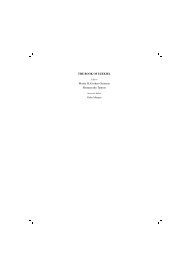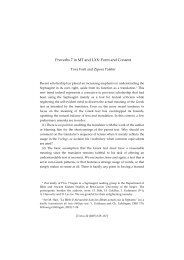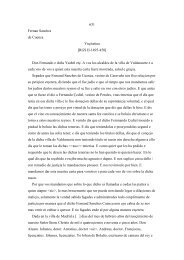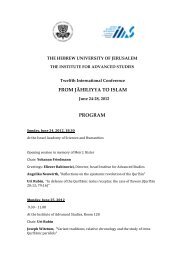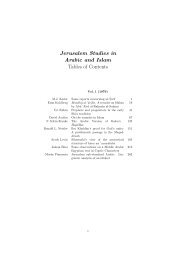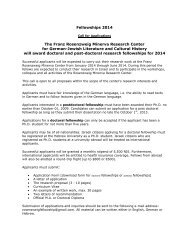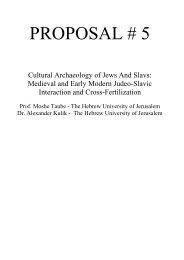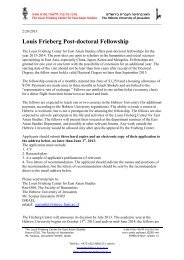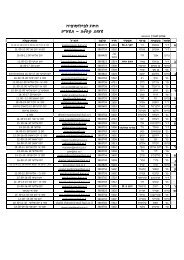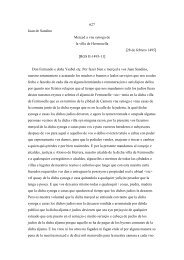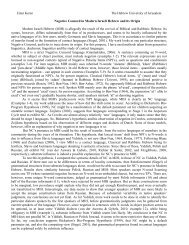Baber Johansen
Baber Johansen
Baber Johansen
You also want an ePaper? Increase the reach of your titles
YUMPU automatically turns print PDFs into web optimized ePapers that Google loves.
32<br />
law books do not have the same detailed information on the shahÁda that<br />
they provide on ritual purity, prayer, fasting, alms-tax and pilgrimage<br />
seems to be due to the fact that a chapter-long discussion of this<br />
testimony would, by necessity, oblige the jurists to discuss the proofs for<br />
God’s existence and of the role of prophets for belief in Islam. In short, it<br />
would involve them in the discussion of theological topics with no direct<br />
bearing on the legal consequences of human acts. It seems to me that<br />
they wanted to avoid this discussion by excluding the theologians from<br />
their consensus. Many jurists consider the belief in God and his Prophet<br />
to be the fundamental cultic act because, without it, no performance of<br />
the other parts of the cult would be valid. Again, belief—with one single<br />
exception—is not the object of a particular chapter in the Sunni law<br />
books and it is, as far as I can see, not subject to the kind of legal or ritual<br />
norms that regulate all other forms of the ritual. The law concentrates its<br />
attention on the human acts and utterances that can be observed and<br />
regulated. It discusses the religious meaning, the correct execution and<br />
the religious reward of cultic acts, but rarely their theological premises.<br />
In fact, it seems that GhazÁlÐ, in his analysis of the relation between<br />
theology and law that he puts forward at the very beginning of his<br />
MustaÒfÁ, gives a systematic explanation of the way this question is<br />
organized in the books of fiqh.<br />
VI.3: The causality of the ritual act: divine commands and cosmic<br />
causes<br />
Even the discussion of the practical aspects of ritual shows that the jurists<br />
face problems when they try to integrate the cosmic aspects of religion—<br />
as developed in theology—into forms of legal reasoning that are based on<br />
the free choice of the responsible actor (ikhtiyÁr). That the cult is closely<br />
linked to cosmic causes is evident to the jurists: the obligatory prayers<br />
have to be performed at certain times of the day, the obligatory fasting<br />
has to be performed during the days of the month of RamaÃÁn, and<br />
pilgrimage can only be performed in the sacred month and in the sacred<br />
precinct of Mecca. Many jurists, therefore, latest from the eleventh



